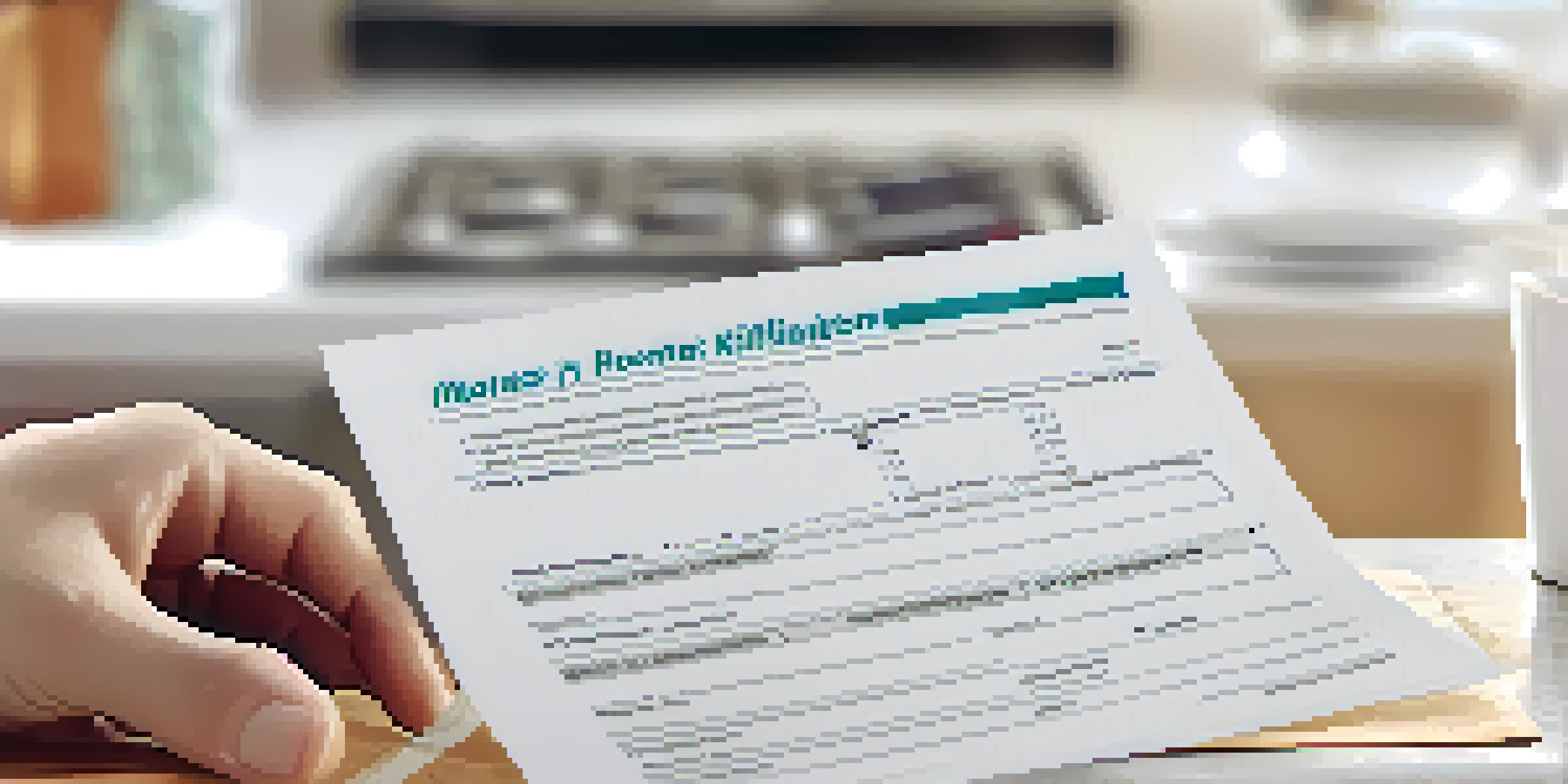Interest Rates and Home Loan Approval Rates

What Are Interest Rates and Their Impact on Loans?
Interest rates are essentially the cost of borrowing money, expressed as a percentage of the loan amount. When you take out a mortgage, the interest rate determines how much you'll pay in addition to the principal over time. A lower interest rate means lower monthly payments, making homeownership more affordable for many.
Interest rates are like a barometer of the economy, indicating how much it costs to borrow money and how confident we should feel about spending.
The Federal Reserve plays a significant role in setting these rates, which can fluctuate based on economic conditions. For example, during periods of economic growth, rates tend to rise, while they may drop in times of recession to stimulate borrowing. Understanding these fluctuations can help prospective homeowners plan their finances effectively.
Ultimately, interest rates not only affect how much you'll pay for your home but also influence the overall housing market. When rates are low, more buyers enter the market, which can drive up home prices. Conversely, high rates might deter buyers, leading to a slowdown in the market.
How Do Interest Rates Affect Home Loan Approval Rates?
Interest rates can significantly influence home loan approval rates for borrowers. When rates are low, many individuals are motivated to buy homes, increasing the number of applications lenders receive. This heightened demand can sometimes lead to more stringent lending practices as banks work to manage risk.

Conversely, when interest rates rise, borrowers may find it harder to qualify for loans due to higher monthly payments. Lenders typically assess a borrower's debt-to-income ratio, and as rates climb, this ratio can worsen, leading to more loan denials. Thus, potential homeowners need to be mindful of current interest rates when considering their home loan options.
Interest Rates Affect Loan Costs
The interest rate determines the overall cost of borrowing, impacting monthly payments and home affordability.
Additionally, lenders often adjust their criteria based on market conditions. In a high-interest environment, they may tighten approval standards to protect themselves from increased default risks, making it even more challenging for some to secure financing. This dynamic relationship between rates and approvals is crucial for anyone looking to buy a home.
The Role of Credit Scores in Loan Approval
While interest rates are essential, your credit score is a critical factor in the home loan approval process. Lenders use credit scores to gauge your reliability as a borrower, and a higher score can often lead to better interest rates. This means that even if rates are low, a poor credit score could hinder your chances of getting approved.
A strong credit score is your ticket to lower interest rates and better mortgage options.
For example, someone with a score above 740 may qualify for the best rates available, whereas someone with a score below 620 could face higher rates or even rejection. It’s a classic case of 'the better your credit, the better your options.' Therefore, maintaining a healthy credit score is vital for aspiring homeowners.
To improve your credit score, focus on paying down existing debts, making timely payments, and avoiding new credit inquiries before applying for a loan. These steps can boost your chances of not only securing a loan but also getting a more favorable interest rate, ultimately saving you money in the long run.
Understanding Fixed vs. Adjustable-Rate Mortgages
When applying for a home loan, you'll encounter two main types of mortgages: fixed-rate and adjustable-rate. A fixed-rate mortgage offers stability, as your interest rate stays the same for the entire loan term, typically 15 to 30 years. This predictability can be comforting, especially when interest rates are low, allowing you to lock in a great rate for years to come.
On the other hand, adjustable-rate mortgages (ARMs) start with a lower initial rate that can fluctuate over time based on market conditions. While this may seem appealing initially, it's essential to understand the risk involved, as your payments could increase significantly if interest rates rise. Many borrowers enjoy the initial savings but may face challenges later on.
Credit Scores Influence Approval
A higher credit score can lead to better interest rates and loan approval chances, making it crucial for potential homeowners.
Choosing between these two options depends largely on your financial situation and future plans. If you plan to stay in your home long-term, a fixed-rate mortgage might be the better choice. However, if you anticipate moving within a few years, an ARM could save you money upfront. Understanding your options can help you make an informed decision.
The Importance of Timing in Securing a Loan
Timing can make a significant difference in securing a home loan. For instance, if you wait until interest rates rise to apply for a mortgage, you may end up paying thousands more over the life of your loan. Therefore, keeping an eye on market trends and economic indicators can help you strategically time your home purchase.
There are also seasonal trends in the housing market, with spring often being the busiest season for homebuying. During this time, competition can be fierce, and lenders may have stricter approval criteria due to the influx of applications. Conversely, applying during the off-peak season could give you an advantage in securing a loan.
Ultimately, being proactive and informed can help you navigate the complexities of home loan approval. Whether it's monitoring interest rates or understanding market cycles, timing your application wisely can lead to better financial outcomes.
The Impact of Economic Factors on Interest Rates
Interest rates are influenced by various economic factors, including inflation, employment rates, and overall economic growth. For example, when the economy is booming, inflation may rise, prompting the Federal Reserve to increase interest rates to cool down spending. This, in turn, can affect how much you pay for your mortgage.
Conversely, during periods of economic downturn, the Fed may lower rates to encourage borrowing and spending. This creates an environment where lenders offer lower rates, making home loans more accessible. Understanding these economic indicators can help you anticipate changes in interest rates and adjust your homebuying strategy accordingly.
Timing Is Key for Home Loans
Strategically timing your mortgage application can result in significant savings, especially in relation to fluctuating interest rates.
Additionally, global events can also play a role in influencing rates. Political instability, natural disasters, or shifts in foreign markets can create uncertainty, causing rates to fluctuate. Staying informed about both domestic and international news can provide valuable insights into potential changes in loan approval rates and interest costs.
Preparing for Home Loan Approval: Tips and Strategies
Preparing for home loan approval requires careful planning and consideration. Start by assessing your financial situation, including your credit score, savings, and debt-to-income ratio. This self-evaluation will help you understand where you stand and what improvements you may need to make before applying for a loan.
It’s also essential to gather all necessary documentation, such as income statements, tax returns, and bank statements, to streamline the application process. Being organized can make a significant difference in how quickly you receive approval and can help prevent any unnecessary delays.

Lastly, don’t hesitate to shop around for the best loan options. Different lenders may offer varying rates and terms, so it’s wise to compare your options. Taking the time to research and prepare can set you up for a successful home loan experience, ultimately leading you one step closer to your dream home.